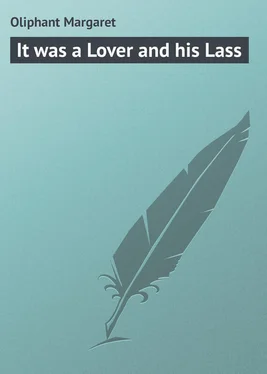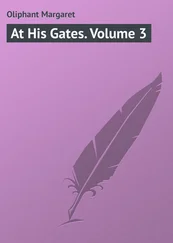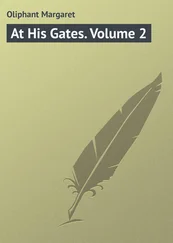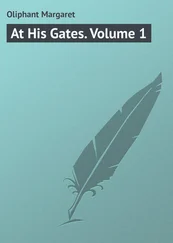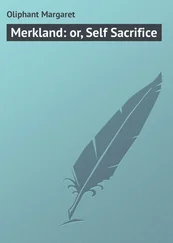Margaret Oliphant - It was a Lover and his Lass
Здесь есть возможность читать онлайн «Margaret Oliphant - It was a Lover and his Lass» — ознакомительный отрывок электронной книги совершенно бесплатно, а после прочтения отрывка купить полную версию. В некоторых случаях можно слушать аудио, скачать через торрент в формате fb2 и присутствует краткое содержание. ISBN: , Жанр: foreign_prose, на английском языке. Описание произведения, (предисловие) а так же отзывы посетителей доступны на портале библиотеки ЛибКат.
- Название:It was a Lover and his Lass
- Автор:
- Жанр:
- Год:неизвестен
- ISBN:http://www.gutenberg.org/ebooks/49597
- Рейтинг книги:3 / 5. Голосов: 1
-
Избранное:Добавить в избранное
- Отзывы:
-
Ваша оценка:
- 60
- 1
- 2
- 3
- 4
- 5
It was a Lover and his Lass: краткое содержание, описание и аннотация
Предлагаем к чтению аннотацию, описание, краткое содержание или предисловие (зависит от того, что написал сам автор книги «It was a Lover and his Lass»). Если вы не нашли необходимую информацию о книге — напишите в комментариях, мы постараемся отыскать её.
It was a Lover and his Lass — читать онлайн ознакомительный отрывок
Ниже представлен текст книги, разбитый по страницам. Система сохранения места последней прочитанной страницы, позволяет с удобством читать онлайн бесплатно книгу «It was a Lover and his Lass», без необходимости каждый раз заново искать на чём Вы остановились. Поставьте закладку, и сможете в любой момент перейти на страницу, на которой закончили чтение.
Интервал:
Закладка:
Margaret Oliphant
It was a Lover and his Lass
CHAPTER I
There stands in one of the northern counties of Scotland, in the midst of a wild and wooded landscape, with the background of a fine range of hills, and in the vicinity of a noble trout-stream, a great palace, uninhabited and unfinished. It is of the French-Scottish style of architecture, but more French than Scotch – a little Louvre planted in the midst of a great park and fine woods, by which, could a traveller pass, as in the days of Mr. G. P. R. James, on a summer evening when the sun had set, and find himself suddenly face-to-face with such an edifice amid such a solitude, the effect even upon the most hardened British tourist would be something extraordinary. There it stands, white and splendid, raising its turreted roofs, such a house as a prince might live in, which would accommodate dozens of guests, and for which scores of servants would be needful. But all naked, vacant, and silent, the glassless windows like empty sockets without eyes, the rooms all unfinished, grass growing on the broad steps that lead up to the great barricaded door, and weeds flourishing upon the approach.
Round about it are avenues of an exotic splendour, like the building, tall araucarias of kin to nothing else that flourishes in Scotland, blue-green pines of a rare species, and around these, in long-drawn circles, lines of level green terraces, upon which you can walk for miles – terraces more fit for Versailles than for Murkley, where the grass is generally wet, and promenades of this kind not very practicable for the greater part of the year. The pines have taken hold of the soil, have thriven and flourished, the araucarias are unequalled in Great Britain. Nature and the landscape have assimilated them, and made them free of the country in which they are to stand for ages. But the house, being due to human-kind, cannot be thus assimilated. No kindly growth, naturalizes it, no softening of years makes it fit into its place. It is too big and imposing to be run over by honeysuckles and roses like a cottage; it stands like a ghost among all the paths that lead to its blocked-up door. The rows of melancholy openings where windows ought to be glare out in their emptiness, in contrast with that door which never opens, and makes all natural access to the place impossible. An army of tramps might clamber in at the windows, and make carnival in the vacant rooms, but the master of the house could not without an organized assault find admittance in the recognized way. At night, or when the evening glooms are falling, nothing can be more startling than to stray into the presence of this huge thing, which is not a habitation, and which seems, all complete yet so incomplete, to have strayed into regions quite uncongenial and out of sympathy with it, where it stands as much out of its element as a stranded boat.
But all the same there is nothing ghostly or terrible about Murkley Castle. It involves no particular mystery of any kind – nothing but the folly of a man who built a house without counting the cost, and who found himself without means to complete, far less enjoy, the palace he had constructed. Not the less is it a strange feature in the landscape, and it would be still stranger if popular superstition did not see sights and bear sounds in it of nights, for which the wiser persons in the country declared they could not account, though of course they did not believe in anything supernatural. This was the reason given by the driver of the gig from the "George" at Kilmorley for the round he wanted to make on a certain June night in the lingering daylight, as he conducted the gentleman reckoned as No. 5 in the books at the 'George' to Murkley village, where this ill-advised person, not knowing when he was well off, as the "George" was of opinion, meant to establish himself at the village inn, which was no better than a public-house.
"It's no from ony superstition," the driver said. "I'm no a man, I hope, to be feared for ghosts; I'm mair feared for flesh and blood. I've a good watch in my pocket, and life's sweet, and if it's tramps, as is maist likely, that have a howff in the auld castle, and mak' a' thae noises to frichten the countryside, the mair reason, say I, to gi'e the auld castle a wide berth."
"But it's daylight," said the traveller; for, after all, as in the days of Mr. G. P. E. James, it is a traveller of whose early impressions the historian avails himself; "and there are two of us; and that beast of yours could surely show a clean pair of heels – "
He spoke with a slight accent which was foreign, but which the countryman took to be "high English: " and had certain little foreign ways, which Duncan was not clever enough to understand. He responded, cautiously,
"Oh, ay; she'll gang weel enough – but a mare ye see's a flighty creature – they're mair nervous than a fine leddy – and, if they think they see something they canna account for – "
"But, man alive!" cried the stranger, "you're not afraid of ghosts in broad daylight."
"I'm no speaking about ghosts – and ye ca' this braid daylicht! It's just the eeriest licht I ever saw. Do you ken what o'clock it is? Nine o'clock at nicht, and ye can see as plain as if it was nine in the morning. I come from the South mysel', and I'm no used to it. Nor it's no canny either. It's no the sun, it's no the moon; what is it? Just the kind of time, in my opinion, that ye might see onything – even if it wasna there – "
This lucid description gave our traveller great pleasure.
"I had not thought of that," he said, "but it is quite true. Here is a half-crown for you, if you will drive by Murkley – is it Murkley you said?"
"You kent a' about Murkley when you made up your mind to make your habitation there," said Duncan, with a glance of suspicion. "If you ken the village, ye maun ken the castle. They're ower proud to have such a ferly near them, thae ignorant folk."
"You don't mean to win the half-crown," said the other, with a good-humoured laugh.
Duncan, who had slackened his pace when the offer was made, and evidently, notwithstanding his ungracious remark, contemplated turning, which was not so easy in the narrow road, here suddenly jerked his mare round with an impatience which almost brought her on her hind quarters. "It's of nae consequence to me," he said.
But this clearly meant not the half-crown, but the change of route. They went in through a gate, to which a castellated lodge had been attached, but the place was empty, like the castle itself. A slight uncertainty of light, like a film in the air, began to gather as they came in sight of the house, not darkening so much as confusing the silvery clearness of the sky and crystalline air. This was all new to the stranger. He had never been out in such an unearthly, long-continued day. It was like fairyland, or dreamland, he could not tell which. The evenings he had known had been those rapid ones, in which darkness succeeds day with scarcely any interval; this fairy radiance gave him a strange delight, the pleasure of novelty mingling with the higher pleasure of a beauty which is exquisite and has scarcely any parallel. It seemed to him the very poetry of the North, the sentiment – far less glowing and passionate, yet, at the same time, less matter of fact than that to which he was accustomed – of the visionary land into which he had come. He did not know Scotland, nor yet England, though nobody could more pride himself on the quality of an Englishman. He knew Ossian, which had delighted him, as it delights the fancy of those who know nothing about its supposed birthplace. To be sure, storm was the Ossianic atmosphere, and nothing could be more completely removed from any indication of storm than this. The sky was like an opal descending into purest yellow, remounting into a visionary faint blue, just touched with gossamer veils of cloud. It was not like the glories he had read of a midnight sun. It was like nothing he had ever read of. And into this strange, unearthly light suddenly arose the great white bulk of the palace, with its rows upon rows of hollow eyes looking out into space. Lewis Grantley started, in spite of himself, at the sight, and, what was more remarkable, the mare started too, and required all the efforts of her driver to hold her in.
Читать дальшеИнтервал:
Закладка:
Похожие книги на «It was a Lover and his Lass»
Представляем Вашему вниманию похожие книги на «It was a Lover and his Lass» списком для выбора. Мы отобрали схожую по названию и смыслу литературу в надежде предоставить читателям больше вариантов отыскать новые, интересные, ещё непрочитанные произведения.
Обсуждение, отзывы о книге «It was a Lover and his Lass» и просто собственные мнения читателей. Оставьте ваши комментарии, напишите, что Вы думаете о произведении, его смысле или главных героях. Укажите что конкретно понравилось, а что нет, и почему Вы так считаете.
